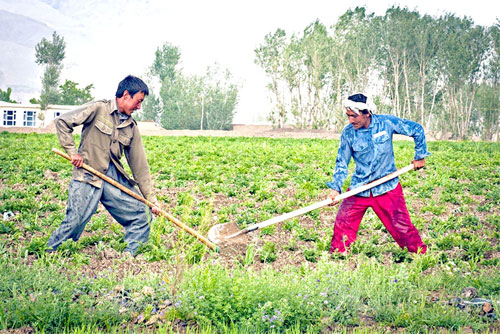While efforts to stabilize political crisis in Afghanistan remain hollow, local farmers express frustration on yields due to limited rain showers, where reports suggested over 25 provinces out of 34 suffered drought in 2021. Local farmer called on the Ministry of Agriculture, Irrigation and Livestock to provide irrigation system in order to tackle limited rain falls and expected drought in the country. “There was no precipitation. Only some snowfall happened and it just stayed within the mountains. There was no rainfall,” said Zahoor, a farmer, as local media quoted.
This comes after Special Inspector General for Afghanistan Reconstruction (SIGAR) in a report quoted Food and Agriculture Organization (FAO) of the United Nations, saying humanitarian officials believe this to be the worst drought in a generation, with below-average precipitation expected to continue through early 2022. “Of Afghanistan’s 34 provinces, 25 suffered from drought in 2021, contributing to a 20% decrease in cereal harvest from the previous year,” the report said.
In a country, where about 70 percent of locals make a living from farming, irrigation system could be a game changer, guaranteeing livelihood of more than a half of Afghanistan’s entire population. “You see that farming is very difficult now. There is no enough water,” said Yaqotshah, a local farmer who has been in the profession for over 20 years, ensuring his families basic needs.
“The Ministry of Agriculture, Irrigation and Livestock should help us so that we can do our farming,” said Ghulam Ghaws, another farmer. On Wednesday, the World Bank in a statement said that Afghanistan’s per capita income has fallen by around 1/3 during the fourth quarter of 2021, wiping country’s economic progress achieved since 2007.—KP News










